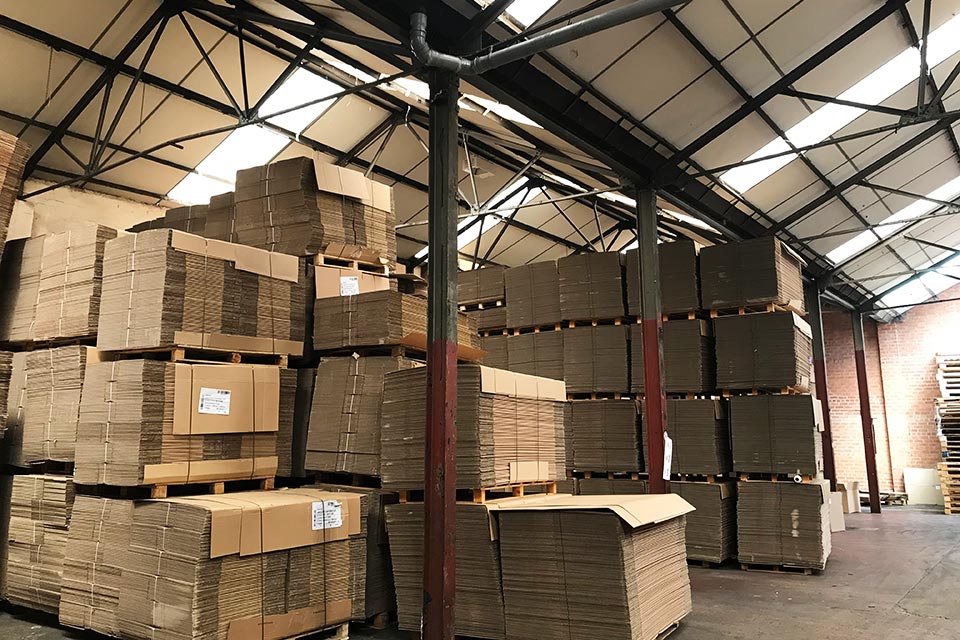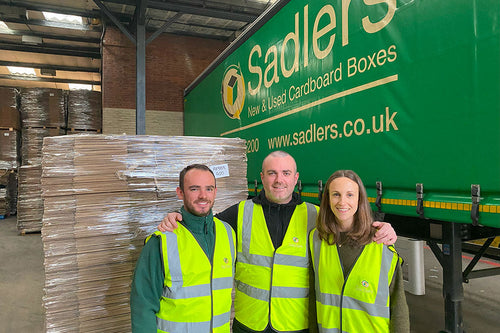Is there really another cardboard box shortage?

Many industries have been faced with challenging conditions over the last year. Problems at the borders due to Brexit, uncertainties in the lead-up to fully exiting the EU, along with the Coronavirus crisis all contributed to creating shortages of corrugated material. We look at what's happened over the last 12 months and offer a solution to the challenges posed in the market.
From March 2020, more retailers were forced to go online and small businesses started up in response to job losses or the fear of redundancy. That meant more boxes were needed in order to send goods out to a much wider pool of individual customers stuck at home during lockdowns.
On top of that, recycling centres were shut for weeks during March, April and May, meaning that cardboard piled up unable to be recycled. The effect on the supply of boxes was immediate, and the media first reported box shortages at the start of April. Paper mills also experienced shutdowns while they adjusted to new Coronavirus restrictions.

Here at Sadlers we saw a jump in demand at the same time, and as a company that sells used boxes we found ourselves in a unique and interesting position to cope with the market changes. Despite large company shutdowns our supply was not cut off as our supplies often come from highly essential food and medical manufacturers. This meant that our customers were able to get the boxes and packaging they needed when other suppliers were struggling.
In December and January however we certainly felt the strain on materials supply for brand new boxes, particularly as there is an annual surge in the lead-up to Christmas every year. For instance, our range of pallet boxes had to be pulled from the website for a week or two as we, along with every other packaging supplier, fought to keep supplies flowing. Some suppliers who only sell new boxes were experiencing extraordinary lead times and unprecedented stoppages in their supply, whereas we were able to sell used boxes to make up the shortfall as it is our main business and required no changes on our part.
The news of box shortages soon spread and became mainstream: the BBC ran a report entitled ‘Cardboard shortage forces retailers to box clever’ on 31st January. The article gave examples of disappointed customers and businesses asking customers to bring boxes with them to collect items.
In response to that, a report came out saying that shortages were due to settle down quickly. “More capacity is also shortly coming on stream, with a number of mills across Europe bringing on massive additional capacity over the coming months” they said. How that will translate to UK supplies isn’t yet known, as disruptions with paperwork at the borders is still a problem for those importing from the EU since changes to trading at the start of January.
When supply is low and demand is high, the inevitability is that the market experiences price rises, which is what we are seeing now. There has been a universal rise in paper costs and other essential operating costs in recent weeks and that is now starting to trickle through into prices of new boxes.
This surge in box prices is making reuse even more attractive. Why buy expensive new boxes that are in short supply when you can buy great quality, hand-sorted and graded once-used boxes? The popularity of used packaging has skyrocketed thanks to these unusual conditions, and the more businesses that know about this the better! Used cardboard boxes offer a real solution to both economic and environmental challenges in business.
And while there are shortages in supplies of new boxes, we are still diverting huge volumes of used cardboard boxes to the reuse market, bypassing these problems as best as we can and offering positive steps forward to avoid shocks like this from disrupting packaging supply chains so severely in the future.
Featured Articles

December 03, 2025
Options for Recycling Cardboard Boxes
How to recycle cardboard waste: a guide for business and the home The principles of recycling have b...

November 27, 2025
We are WINNERS of a National Recycling Award!
We're thrilled to announce a big win at the MRW National Recycling Awards 2025! Our pioneering cardb...

October 08, 2025
We’ve been shortlisted for the National Recycling Awards!
We’re excited to announce that we’ve been shortlisted in the circular economy category at the Nation...

July 17, 2025
Sadlers becomes Sustainability West Midlands Member
Back in February this year we made the decision to join the Sustainability West Midlands network whi...